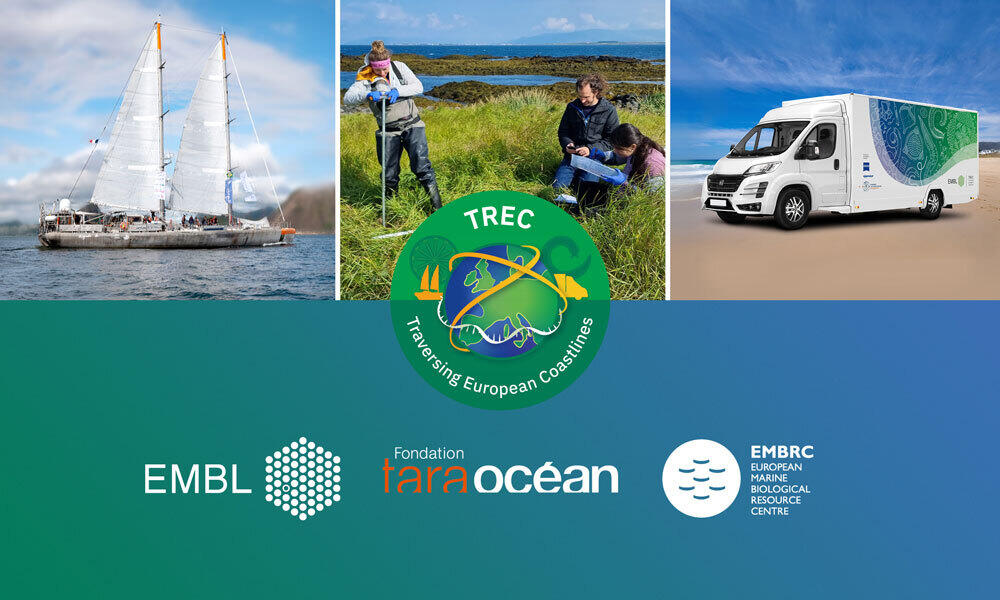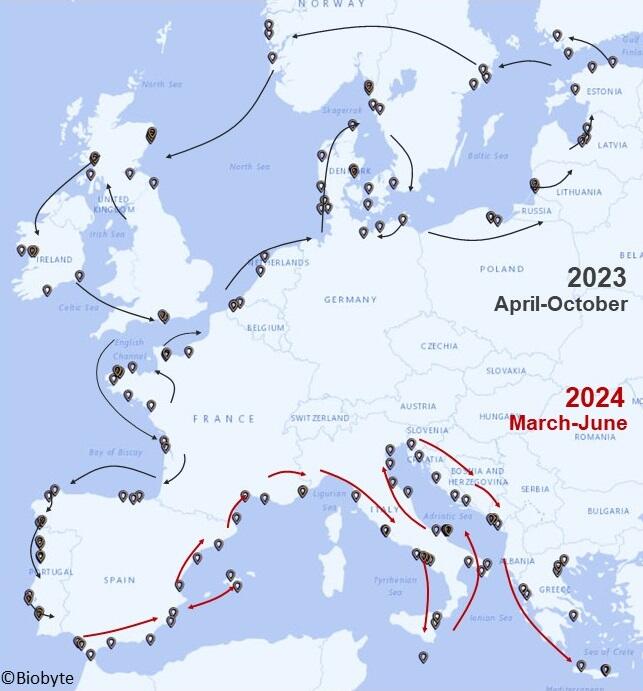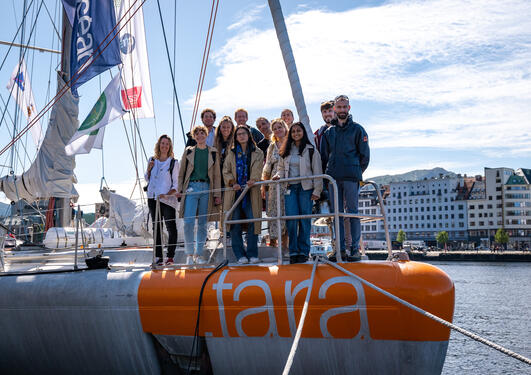UiB hosts European expedition
Traversing European Coastlines (TREC) is a continent-wide expedition addressing environmental challenges along the coasts of Europe. On their northernmost stop, the team was based at the Espegrend Marine Biological Station, hosted by the University of Bergen.
Main content
The TREC expedition is a project initiated by the European Molecular Biology Laboratory (EMBL) to investigate the impact of human activities on coastal ecosystems. The project is conducted in collaboration with the Tara Ocean Foundation, the Tara OceanS Consortium, and the European Marine Biological Resource Centre (EMBRC). From April 2023 to June 2024, teams of researchers will conduct systematic sampling at sea onboard the schooner Tara and on land in 120 coastal locations spread across 22 European countries. Throughout the expedition, 70 scientific institutions provide on-the-ground infrastructure including the Department of Biology (BIO) and the Michael Sars Centre at the University of Bergen.
In Norway, the highest geographical point of the European expedition, the TREC mobile laboratory team was hosted at Espegrend, an EMBRC-Norway experimental facility run by the Department of Biology since 1957. “Espegrend is situated in the middle of a marine biodiversity center, not just of Norway, not just of Scandinavia, but I would say in the entire Northern Europe”, said Henrik Glenner, Professor at the BIO and head of EMBRC-Norway. “UiB is trying to be the leading marine University in Norway. It is important for us to be able to contribute to European large scale research projects like this one.”
“Espegrend is situated in the middle of a marine biodiversity center, not just of Norway, not just of Scandinavia, but I would say in the entire Northern Europe” - Prof. Henrik Glenner
In addition to local infrastructure, TREC relies on custom mobile laboratories bringing state-of-the-art techniques directly to the field. They allow for preliminary sample analysis and storage and help local researchers connect with TREC at selected stops along the way. “We always try to engage researchers at the host university to use the equipment from the large mobile lab”, explained TREC Field Operation Coordinator Valerie Helene Maier “We have experts introducing the equipment and supporting them so that their project can benefit from the technology.”
TREC is particularly innovative in its inclusive approach, studying both land and sea at scales ranging from molecules to organisms and their communities. “Many years ago we said no, nature is too complicated, we can take something out of nature and look at it in our labs. Now we actually have some methods, let’s try to understand nature in its context," said Valerie Helene Maier.
Each sampling point is carefully chosen to allow for the simultaneous recording of environmental parameters and the collection of soil, sediments, aerosols, and offshore seawater. “Every country is different, that is why we cover the entire coast”, explained TREC Expedition Field Scientist Severin-Luca Bellè. “Norway is extremely special because of its landscape history. With the glaciers forming the fjords, with the interactions of the sea and freshwater, we are looking at a very specific type of landscape and ecosystem”.
In Bergen, the close proximity of the fjords to the city provides a great opportunity to compare pristine nature with densely populated areas. “Coastal ecosystems are one of the most important ecosystems for mankind, over 50% of the population lives in coastal regions. Our food chains, our industry, our livelihood depends on coastal ecosystems”, added Severin-Luca Bellè. However, these critical areas are at the forefront of anthropogenic interference, resulting in a rapid decline of species' genetic diversity. It is to address this challenge that TREC scientists are conducting an extensive survey of biodiversity and the adaptability of life along our coasts.
All the data collected during the expedition will be openly available to the global scientific community, creating a wealth of opportunities for researchers in Norway and across the world for many years to come. “We are thrilled and grateful to have had the opportunity to interact with the teams of the TREC expedition, and look forward to future collaborations”, said Lionel Christiaen, Director of the Michael Sars Centre. “Building upon such a uniquely European collaborative spirit, we hope to contribute to fostering excellence in marine life sciences through such inspiring initiatives.”

An EMBL mobile laboratory is parked in front of the Espegrend Biological Field Station, Bergen.







